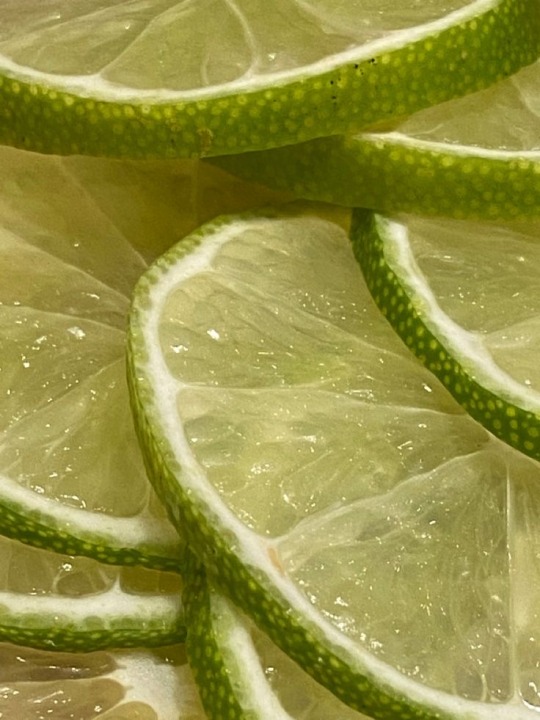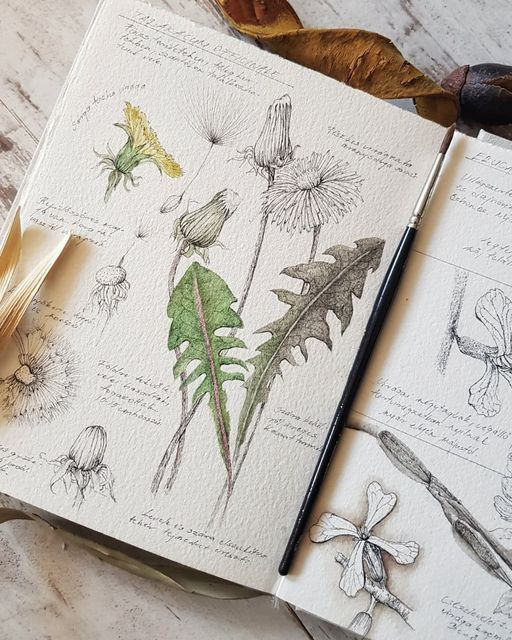#herbal-oil
Explore tagged Tumblr posts
Text
magical uses for essential oils
add to:
the bath
the shower
spell jars
sachets
oil diffusers
washing machine
dryer sheets
make homemade:
perfumes
salves
lotions
soaps
balms
scrubs
floor washes
pest repellants
use to:
anoint candles and crystals
anoint other magical tools
anoint yourself
anoint personal items
make elemental, planetary, or celestial oil blends
make charged water or blessed oils
always:
dilute your essential oils with a carrier oil
do a patch test before putting oils on your skin
never:
diffuse around pets or those with respiratory issues or other medical problems
ingest essential oils or have others ingest essential oils - they are not safe to drink or to cook with
© 2025 ad-caelestia
#witchblr#witchcraft#witch#witchy#witches of tumblr#essential oils#magic#herbalism#anointing#ad-caelestia
274 notes
·
View notes
Text
Safety in Witchcraft
What’s not talked about enough in the spiritual community is mundane safety along with spiritual. Critical thinking is vital. I wanted to share a lot of my personal rules for myself that I have adapted into my craft.
Fire safety, never leave an open flame unattended. Ever. Always burn in an open enough area with a fire safe dish or on ceramic tile away from animals and children. If you leave the room extinguish the flame. Do not sleep with fire going. I know we want to keep that spell going even during a nap but sometimes we don’t wake up in time for danger. This is absolutely vital to keep you safe. It won’t ruin a spell I promise or anger anything. Please do not add those herbs to that candle. I know it’s nice and pretty but that is a fire hazard. Stay safe.
On that note always have an open window or a well ventilated area when burning items. That goes for herbs, incense, or candle. Smoke inhalation can ruin your lungs.
Rodents, reptiles, birds, any animal is sensitive to scents and have small respiratory systems. Be careful using anything around them. Research what can be used around them. I mean research! Cross reference. Use veterinarian hospital guides, not pro essential oil blogs. Please don’t put any essential oils on your pets. They can be seriously harmed.
Moon water actually molds, very easily. So can herbal blends if not stored correctly. Check frequently and use before end of date. Distilled water is your friend to prolongs shelf-life along is storing in a cold dark place.
Witchcraft and magic is not a replacement for medical treatment and medically prescribed medication. It absolutely can aid your treatment but it is never a replacement.
Do not ingest any herbal remedies without consultation with your doctor and/or Herbalist. Especially if you have pre-existing conditions and need to take medications for it. Things can conflict and are deadly.
Also forage responsibly. Unless you are 100% certain what you have foraged is the correct plant. Don’t even chance it. It’s not worth sickness or in worst cases death.
Do NOT ingest essential oils. I don’t care what you have heard from pro essential oil pages. The distillery methods are not safe for ingestion. It can tear up your stomach lining and throat. Cause extreme nausea and vomiting. Seizures and in worst cases death.
Some covens and practitioners are not your friends. Be cautious and use stranger danger. Be cautious and never give out all of your personal information online. There are predatory people everywhere, including in this community. Please be safe. Always use your gut instinct.
Please feel free in the comments and tags to add important safety pointers you have.
753 notes
·
View notes
Text
A natural makeup remover for all y’all herbalist an holistic healthy and beauty gurus out there, or just a witch that wants to get to know plants! - Coconut oil, I use the one that you can find in your local grocery store!
Honestly could have it any other way, all natural, you can put your energy into, it’s plant based, no chemicals, and is great with sensitive skin!
#witchblr#witchcraft#witch#baby witch#witch community#witchcraft community#nature#magick#natural remedies#herbal remedies#herbs#oils#coconut oil#nature witch#food is medicine#natural home remedies#home remedies#kitchen magick#kitchen medicine#holistic health#holisticwellness#holistic living#holistic#makeup#makeup remover#natural makeup#natural body#natural makeup remover
19 notes
·
View notes
Text





Arcane Botanica
#personal#arcanebotanica#cottagecore#herbalism#witchcraft#apothecary#witchblr#herbs#witchcore#magic oils
20 notes
·
View notes
Text

I found this picture of James with 8 polish fans that invited Metallica to drink vodka with them after a concert
The picture was taken February 10th to 11th at night, 1987
#metallica#james hetfield#80s james#mop era#amsmuch's thoughts#this is so funny#2 dudes that knew english just enough#went up to them and invited james to drink with them#and they got some herbal vodka#that apparently stasted like motor oil
126 notes
·
View notes
Text
Oils and their ritual correspondences Part 5
🍋🍃 Bergamot: In herbal folklore, it is said that the oil of Bergamot leaves, when rubbed on money, will ensure the return of riches; it is also well known for prosperity spells.
✨Planetary rulerships: Mercury


#baby witch#beginner witch#green witch#pagan witch#spellwork#witch aesthetic#witchcore#witchcraft#witchythings#witchyvibes#witchblr#herbal correspondences#bergamot#cleansing spell#protection spell#spell craft#hoodoo oil#essential oils#autumn equinox#autumn season
133 notes
·
View notes
Text


𝑷𝒓𝒐𝒔𝒑𝒆𝒓𝒊𝒕𝒚 & 𝑱𝒐𝒚 𝑯𝒆𝒓𝒃𝒂𝒍 𝑰𝒏𝒇𝒖𝒔𝒆𝒅 𝑶𝒊𝒍
Hello witches, I want to share with you a recent magic oil I made for candle dressing & spell making🕯✨️ you can also use it for your overall craft,
You'll need:
🌼 Chamomile
🌼 Calendula Flower
🌼 Lavender
🌼 Clove Powder (*can be replaced with whole clove)
🌼 Copal Incense (*I used copal resin for a concentrated infusion)
🌼 Carrier Oil (*I used olive oil)
🌼 Small Jar
Instructions ~
Cleanse your jar with salvia/sage incense, or cleanse with your preferred method,
Gather your dry ingredients into your jar: the chamomile, calendula flower, lavender, love & copal resin,
Set your intentions for your herbs, I like using my hand over each herb before putting them inside the jar, guiding each herb with which correspondence or property I'll need,
Pour in your carrier oil of choice, do it slowly allowing the oil to get to the bottom, this will get rid of any air bubbles,
Say your last intentions for the overall oil, close with the cork or cover, and let it sit for a few days to allow the infusion to set in,
When the oil is done resting, pour your concentration infusion unto another bigger jar without the herbs, it's okay if bits go in though,
Finally, top off the remaining or the jar with more olive oil,
And that's it! Your Prosperity & Joy Oil is ready for use, whether you want to dress a yellow candle to bring joy, happiness, prosperity & clarity to your daily life, or use topically before bed, etc.,
*Please note that this or any oil infusion posted here is NOT meant to be ingested/eaten, keep away from children & animals !!
Happy Crafting!
#wicca#witchcraft#white spell#spell#prosperity#prosperity spell#magic#witches#witch#pagan#eclectic#spells#spellcraft#clarity#copal#chamomile#lavender#calendula#happiness#green witch#witchy oil#infused herbal oil#herbs#candle magick#good luck#joy#witches of tumblr#witchblr#witch blog#witchy vibes
20 notes
·
View notes
Text

Het Blauwe Huis in Ruinerwold, the Netherlands
#shop in source#organic homegrown herbs and spices and herbal oils#ruinerwold#drenthe#het blauwe huis#the netherlands#farmcore#country life
75 notes
·
View notes
Text
Hoodoo Herbal Folk Recipes for Conjure Spellwork with Herbs, Houseplants, Roots, Oils (Starr Casas).pdf
Hoodoo Herbal Folk Recipes for Conjure Spellwork with Herbs, Houseplants, Roots, Oils (Starr Casas).pdf

This definitive guide to Hoodoo plant magic contains detailed information on dozens of roots and herbs. In Hoodoo Herbal, Starr Casas shares a lifetime of experience and family secrets in her usual plain-spoken, direct, and friendly style. Mama Starr makes Hoodoo plant magic accessible to all. For example, snake plants (Dracaena trifasciata)—common houseplants that are readily available at garden stores and supermarkets—possess a long reputation for successfully keeping lying tongues from disrupting your home. As their leaves resemble a double-edged sword, they are believed able to cut through malicious works (spells) that may have been sent against you. They are valued for their anti-gossip properties. The book features information about a wide variety of plants and how to use them, as well as practical tips regarding planting seeds, cutting, transplanting, and caring for plants so that they will care for you, too. Starr advises that as the plants thrive and grow, the works for which they are used will grow stronger, too—as will you.
#Hoodoo Herbal Folk Recipes for Conjure Spellwork with Herbs#Houseplants#Roots#Oils#Hoodoo#rootwork#THE BLACK TRUEBRARY
8 notes
·
View notes
Text
So, I was broken out this week pretty bad- I did 2 days of gua sha with a mix of castor oil/ frankincense oil and massages my face for about 5 minutes before sleeping.
And my face cleared up so much! Even my sister notcied!🥺💗✨️🫶
#also it's not just gua sha and the oil mix- please remember to drink water and herbal teas#change your bedsheets and pillow covers#eat well as best as you can and rest#it's hard being human#sharing time#December#2024#acne#adult acne#skin care#gua sha#castor oil#frankincense oil
7 notes
·
View notes
Text
by the way
infusing oil with raw garlic is a breeding ground for botulism
stay safe, folks.
46 notes
·
View notes
Text
What are Infused Oils?

What are they?
Infused oils are herbal components or spices placed in a jar of carrier oil like Olive Oil, Grapeseed Oil, Avacado Oil, Jojoba Oil, Coconut Oil, etc. Can be used in cooking, herbal ailments and skincare.
Are they essential oils?
No. Short answer, no. Long answer? I'll give you an explanation. Essential oils are distilled using Steam Distillation, Solvent Extraction, CO2 Extraction, Maceration, Enfleurage, Cold Press Extraction, and or Water Distillation. Lotta words huh? It takes a lot of work to make essential oils. Unfortunately, it also takes quite a bit of that plant to make even those tiny 10ml bottles you purchase. Of course, each plant varies. However, it still can lead to a larger environmental impact.
For instance, one pound of essential oil can be extracted from approximately 250 pounds of rosemary leaves, or from 150 pounds of lavender buds, or say 50 pounds of eucalyptus leaves. This is why you see some as more expensive than others. Unfortunately, you can see where the problem lies in plants that are more threatened or endangered. If you must use essential oils, source responsibly (and not from a Pyramid scheme but I'm not opening that can of worms)
Can I use infused oils in my practice?
Yes! Absolutely! All these oil recipes you see for spell oils are exactly that. You can even use the elemental correspondences of the carrier oils you use for spell oils. As an example Olive Oil is traditionally known for the fire element and Coconut Oil is water. The possibilities for your personal correspondence are endless!
Now I'll stop rambling. Here are a few methods I learned to infuse oils in my courses and through self-herbalist study.
Method One:
The Folk Method - The most common
Directions
Place DRIED herbs in a clean, dry jar. Leave at least 1 to 3 inches of open space above your herbs to cover with oil.
Fill the remaining space in the jar with the oil of your choice, making sure to cover herbs by at least 1 inch or more. If the herbs emerge above the surface of the oil at any point while infusing, pour more oil on top to ensure the herbs remain covered.
Cap the jar tightly and shake well.
Place the jar in a sunny, warm windowsill and shake once or more per day.
After 2 to 3 weeks, strain the herbs out of the oil using cheesecloth or a mesh strainer. Or you can leave it in but straining is recommended if you are using dropper bottles as it clogs the caps.
Pour into clean glass bottles.
Remember to label your jars with the date, type of oil, and herbs used! You WILL forget! Trust me.
Store in a cool, dark place. The oil may keep for up to a year.
Method Two:
The Heat Infused Method - Quick Infusion
Directions
Place herbs in the crock pot or double boiler. Cover with extra virgin olive oil (or other carrier oil of choice), leaving at least an inch or two of oil above the herbs.
Gently heat the herbs over very low heat (preferably between 100° and 140° F for 1 to 5 hours, until the oil takes on the colour and scent of the herb. Some recommend heating the oil for 48 to 72 hours at a controlled temperature of 100° F. Turn off the heat and allow it to cool. I personally prefer letting it sit in a crock pot for 72 hours as I feel like I get all of the benefits out of the herb.
Once oil is cooled, strain using cheesecloth.
Bottle in dry, sterilized glass bottles. LABEL your bottles with the date and contents before storing them.
Store in a cool, dark, dry place for up to six months.
Best herbs to infuse in oil
There are a countless number of herbs, spices and resins that can be infused into the oil. Please make sure these herbs are free from pesticides and chemicals (not found on the roadside). Dried herbs work best as you don't want your mixture spoiling sooner. Here are some great examples of herbs to use.
Pine needles
Calendula flowers
Chamomile flowers
Lavender
Lemon balm
Peppermint leaf
Rosemary leaf
Thyme leaf
There you have it! Now have fun and source responsibility.
Happy witching!
Want to read more?
On sustainability and impact:
Links:
Dangers of essential oils and pets:
Link:
Want to check out my other post? Look at my Masterpost
#witchcraft#witch#infused oils#spell oils#essential oils#aromatherapy#kitchen witchcraft#herbal magic#herbalism#herbalist#herbal medicine#witchblr
106 notes
·
View notes
Text

My collection of Scott Cunningham works I have read so far:) - more coming soon! Just bought six books of his
#witchblr#witchcraft#baby witch#witch#witch community#witchcraft community#magick#nature#crystals#magic#books#Wicca#beginner witch#witchtips#witchcraft books#divination#meditation#Scott Cunningham#earth power#elements#earth air fire water#oils#incense#brews#herbal#herbs#gems#rocks#minerals#Wicca in the kitchen
61 notes
·
View notes
Text
Whipped up some witchy herbal oil for sore muscles yesterday. It was great to be back in my kitchen working my craft!!

20 drops lavender oil
20 drops chamomile oil
20 drops mint oil
15 drops organic coconut oil
Simmer together in Bain Marie for 20 mins with a pain banishment spell 💚💚
#greenwitch#housewitch#folk witchcraft#herbalism#witch#witchcraft#craftrecipes#essential oils#naturaloilrecipes#witchblr
7 notes
·
View notes
Text
youtube
New Video is up on my channel! All about my Aromatherapy and Herbalism Journey so far.
#witch#witchcraft#pagan#cardslinger#witch community#witchblr#youtube#wonderxviii#aromatherapy#herbalism#aromaheadinstitute#herbal academy#herbs#essential oils
2 notes
·
View notes
Text

so in love with this nervine salve i made last night for my apothecary, it’s infused with lavender, rose, elderflower, and holy basil, with a touch of pink grapefruit essential oil to give it a shimmery fragrant finish. so comforting and grounding✨
#herbalism#flowers#healing#herbs#apothecary#plant based#plants#herbcraft#lavender#rose#holy basil#tulsi#tulsi tea#dried herbs#infused oil#herbal oil#essential oils#pink grapefruit#grapefruit#fragrance#perfume#salve#herbalism community#self healing#beauty#faith#positivity#spirituality#love#witchy
3 notes
·
View notes